This project series shows how to finish a basement bedroom with step-by-step remodeling instructions.
Daylight Basement
My home sits on a hillside and has a daylight basement (also called a “walk-out basement”) with windows and exterior doors. The basement room to be converted to a bedroom was already finished to a large degree with three windows, an interior door, drywall, heating/cooling air vent, electrical outlets, light switch and overhead light socket with a single light bulb. However, it was used mainly for storage because it had a painted concrete floor, light green walls (that I didn’t like) and no window blinds. In the original state, the real estate appraiser classified the basement room as a “recreation room”.
Basement Bedroom Building Code Requirements
To qualify as a basement bedroom, the room must meet certain requirements:
- Emergency exit and rescue openings are required by Building Codes for the basement bedroom to qualify as “living space“.
Call your local Building Inspection authority to confirm the requirements for your home. - In the eyes of a realtor or real estate appraiser, a bedroom must have a:
- door that can be closed
- window (minimum size of 24 inches by 36 inches)
- closet
- The basement bedroom should be directly accessible via a hallway and have convenient access to a bathroom.
No one likes running upstairs to go to the bathroom.
The U.S. Dept. of Housing and Urban Development (HUD) defines the requirements for habitable basement space in the Valuation Analysis for Single Family One- to Four- Unit Dwellings (4150.2) handbook, Section 3-3 “ANALYSIS OF PHYSICAL IMPROVEMENTS”, “B. BASEMENT BEDROOMS, BASEMENT APARTMENTS” valuation guidelines for below-grade rooms, which state:
"B. BASEMENT BEDROOMS, BASEMENT APARTMENTS As a rule basement space does not count as habitable space. If the bedroom does not have proper light and ventilation, the room can not be included in the gross living area. The following requirements apply to the valuation of below-grade rooms: o The windowsill may not be higher than 44 inches from the floor. o The windowsill must have a net clear opening (width x height) of at least 24 inches by 36 inches. o The window should be at ground level; however, compensating factors may allow less."
Although the HUD handbook does not mention closets, generally accepted requirement by realtors is a bedroom must have a closet.
Building Code requirements for a bedroom also include:
- An Arc Fault Circuit Interrupt (AFCI) circuit breaker for the wall electrical outlets.
AFCI’s are required by the 2008 National Electrical Code (NEC) for arc-fault detection to prevent fires. - A smoke alarm.
My home was built in 2002 before the 2008 NEC took effect. The AFCI and smoke alarm will be upgrades. Since my home is heated by a natural gas furnace, I’ll install a carbon monoxide alarm, too.
How To Finish a Basement Bedroom
This is the basement “recreation” room as it was classified by the real estate appraiser before being converted to a basement bedroom. I’ve already ground off the floor paint with an electric cement grinder (large format, smaller format) and given the ceiling a fresh coat of paint.
Before:
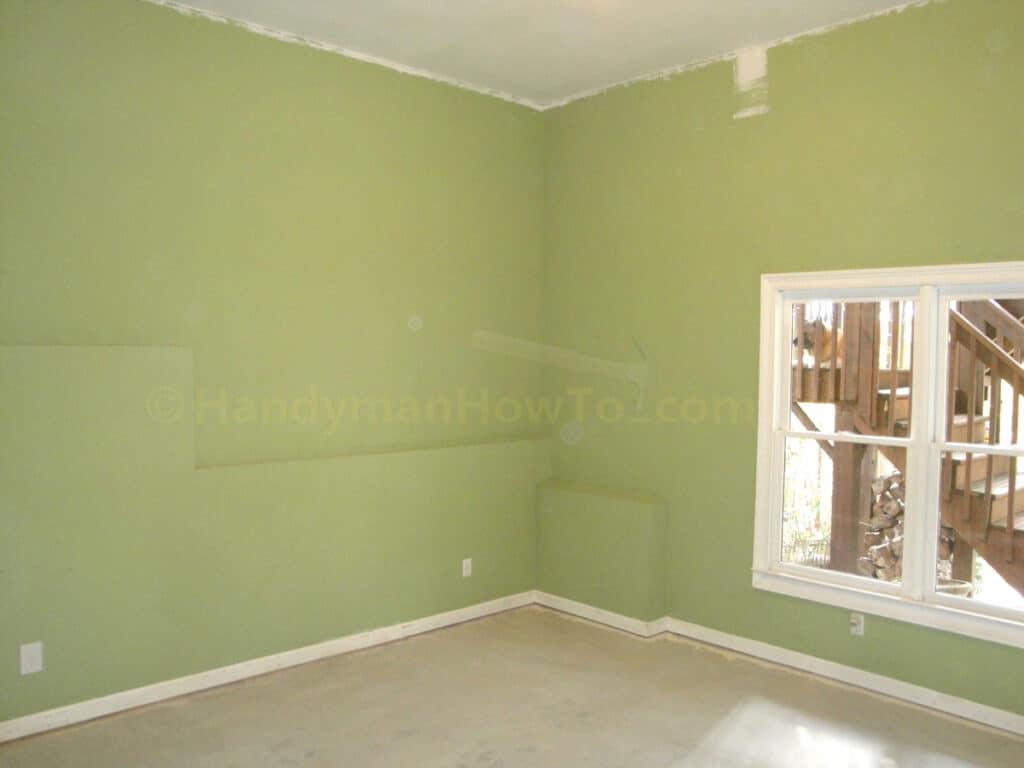
After:
The finished basement bedroom. The finished exterior dimensions of the basement bedroom closet are 5 ft 11 in wide by 3 ft 9 in deep by 8 ft 3.5 in tall. The closet has 13.7 square feet of floor space as measured inside the baseboards. The two bi-fold doors are a total of 4 feet wide (24 inches for each door).
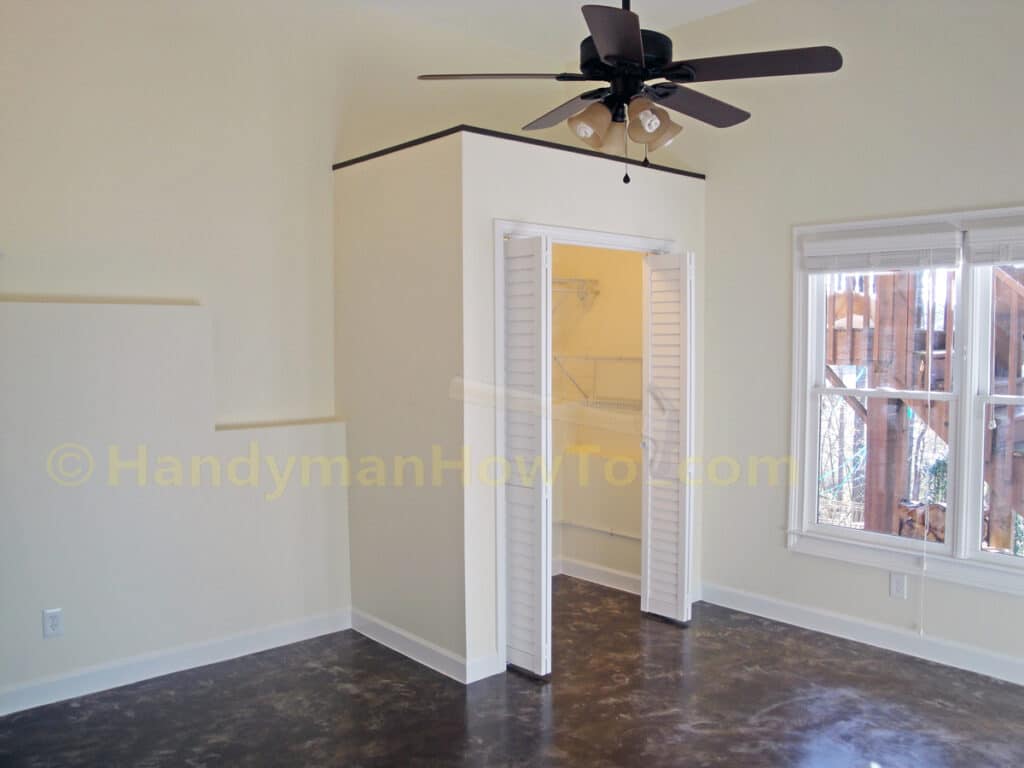
View of the far side of the basement bedroom. The basement bedroom dimensions are 14 ft 8 in by 13 ft 6 in. Each of the three windows are 31 inches wide by 61 inches high as measured from the interior window frame.
The basement ceilings are 11-1/2 feet high because the house sits on a hill side. View of the new basement bedroom closet and ceiling fan from a ladder. The closet is capped with 1/2 inch cabinet grade plywood to create a durable load bearing platform to support extra storage.
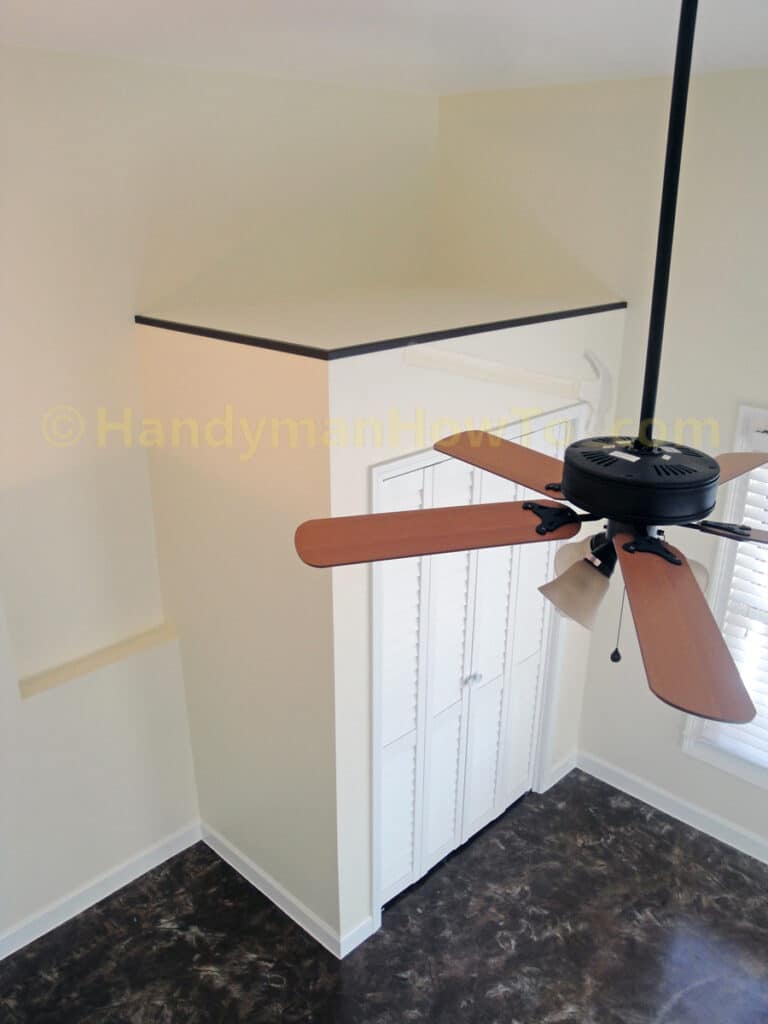
The new basement bedroom is adjacent to the basement bathroom via the hallway. A future homeowner will find the new basement bedroom very convenient.
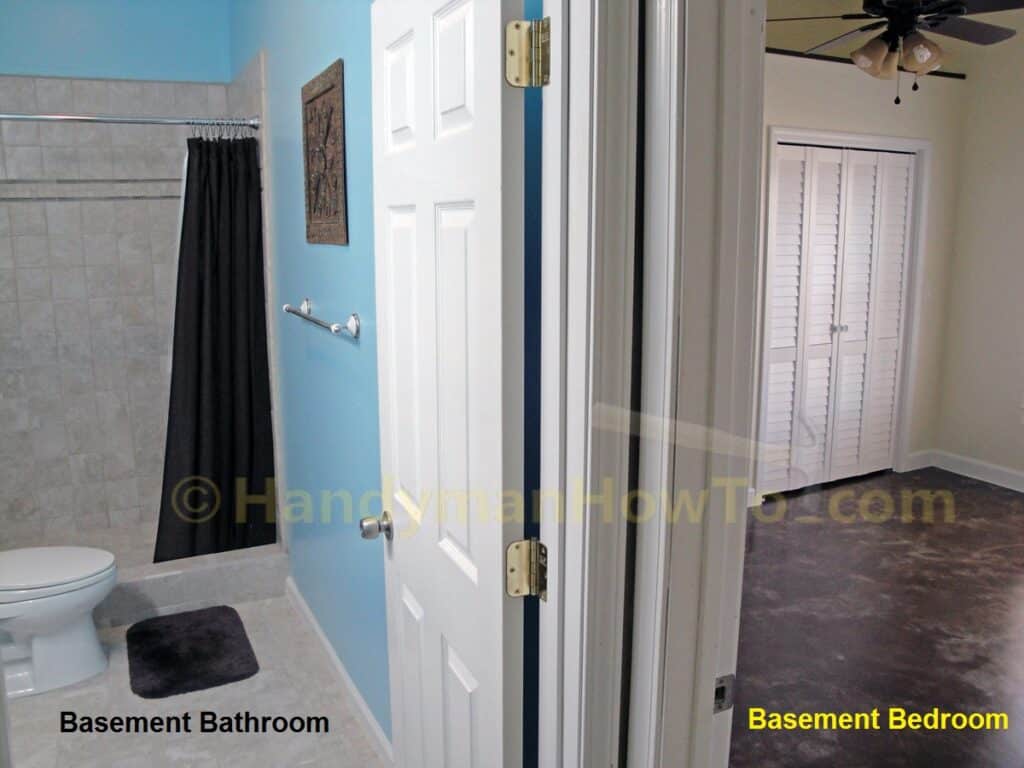
Basement Bedroom Finishing Steps and Cost
The basement bedroom remodeling job cost about $2,000 in materials and required about 6 weekends of my time and labor. The remodeling tasks were:
- File for a Building Permit for the framing and electrical work.
- Grind the paint off the concrete slab floor.
- Paint the ceiling and walls.
- Install a ceiling fan and light kit.
- Remove and discard the baseboards.
- Finish the concrete floor with SkimStone for a marbled ebony look.
- Build a basement bedroom closet: 2×4 framing, drywall and painting.
- Install wiring, light switch and a ceiling light in the closet.
- Replace the standard circuit breaker with an AFCI circuit breaker.
- Install a ceiling smoke alarm.
- Building inspection sign-off for the closet framing and electrical wiring.
- Paint and install new baseboards.
- Install door jambs and bi-fold doors.
- Install faux wood window blinds.
- Install new electrical outlet cover plates.
Here’s the 2×4 basement bedroom closet framing in progress. A challenge was building the closet over the ledges made by the cement walls of the concrete foundation. The closet framing was built exclusively with wood screws and Simpson Strong-Tie wood construction connectors. No nails!
The basement bedroom closet partially drywalled and electrical wiring for the light switch and ceiling light. I used Wiremold outlet boxes and raceways with NM-B 14/2 cable to extend power from a wall outlet to the closet light. I had to stop at this point to wait for the building inspector to sign-off on my permit.
Door jambs, door casing and bi-fold doors ready to be installed:
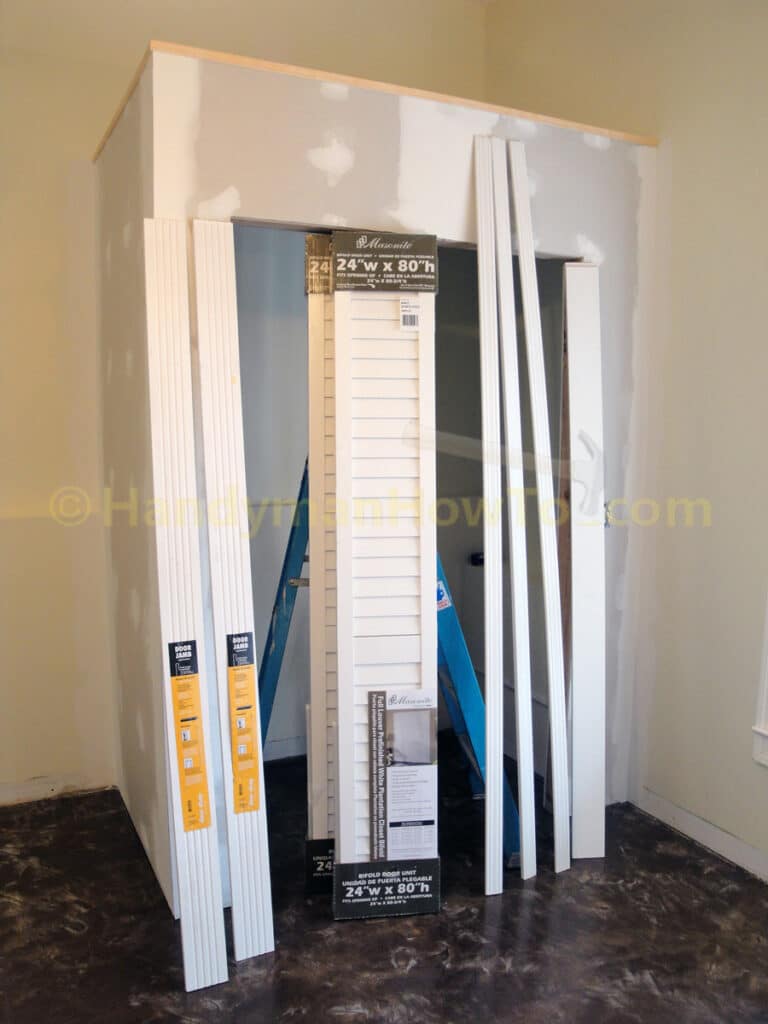
Next up, painting the wall trim along the ceiling.
Take care,
Bob Jackson